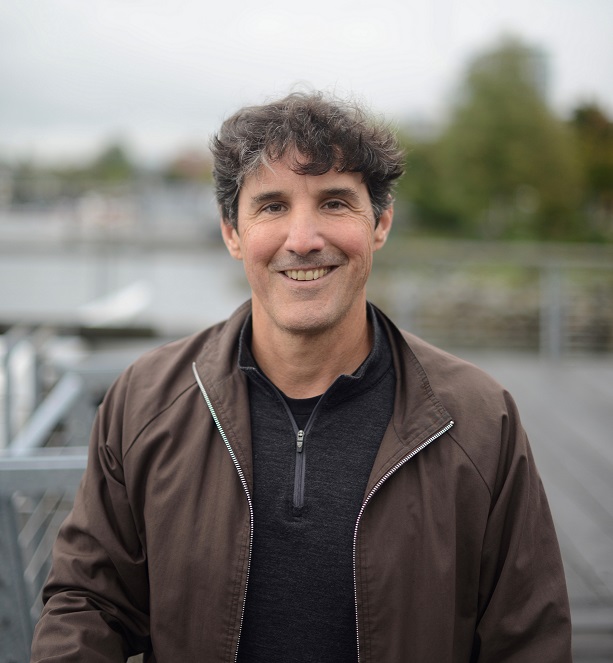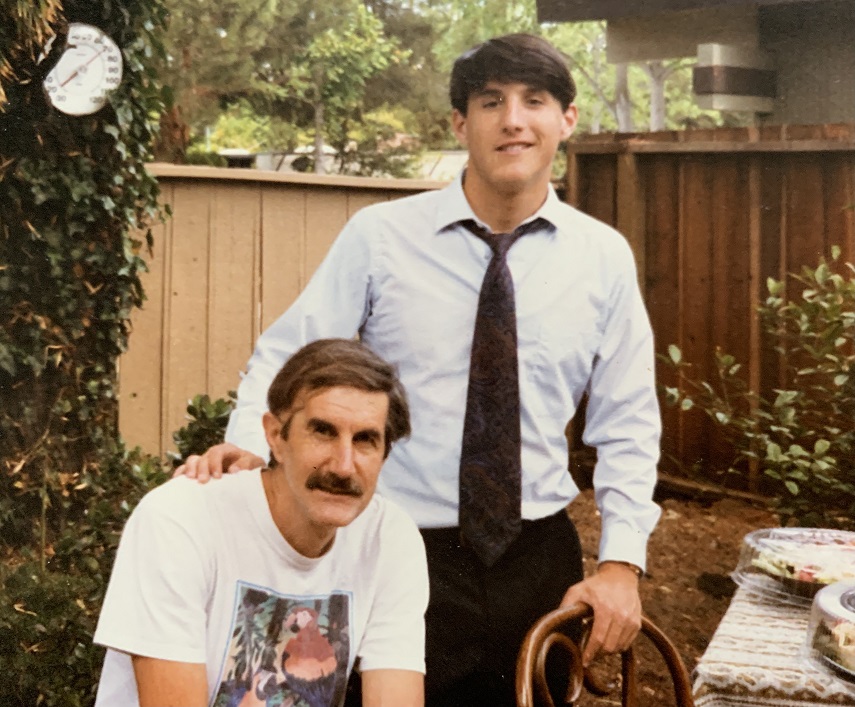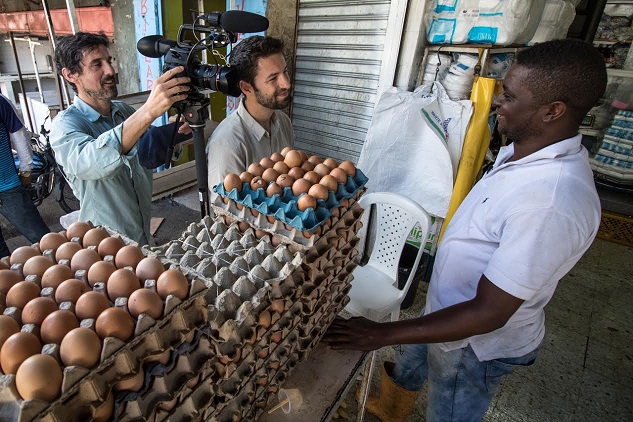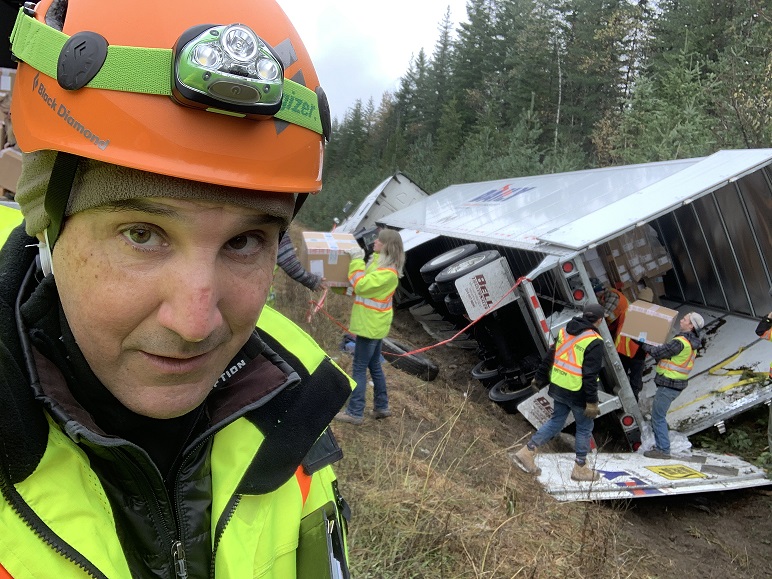Transforming Fear and Embracing the Future
By Dan McKinney
Vice Area Men’s Leader
Vancouver
After more than 35 years of practice, I’ve learned so much about the potential for Buddhahood in myself and others. At the same time, along with that enlightened growth, I’ve also come to more intimately know my fundamental darkness—the tendencies deep in my life that inevitably emerge whenever I struggle to expand it. Confronting those demons again and again is my “human revolution."[1]
I began this practice as a teen in the San Francisco Bay Area in the ‘80s. It was a good place to put my youthful energy while escaping some of the anxiety I was feeling around my family’s situation at the time. My dad had been diagnosed with an aggressive form of brain cancer and the doctors had given him only a few months to live. At that time, I threw all my doubt, frustration and anger about his illness into prayer and SGI activities. As our seniors in faith would often remind us: Never give up, no matter what! That seemed to sum up my life then. I couldn’t bear losing my dad. However, to the surprise of his doctors, he lived another 16 years before he passed away in 2002. It felt like a miracle and an early lesson in the power of this practice, but also that experience shed light on my own fundamental darkness. The struggle for my dad’s life, combined with my own anxiety about his possible death, revealed a deep fear of change in me. It was like I had been trying to hold back the unstoppable flow of time and its inevitable consequences.

Dan with his dad at home in San Jose, California 1990
This tendency in my life to avoid anything that equalled big changes followed me like a spectre—a deep doubt about the resilience of my life. Could I thrive in spite of a loss or a big shift in life’s course? Could I transform change into a springboard for growth and possibility somehow? These questions seemed easy to answer on paper, but deep down, I was always afraid of the future.
In 1993, President Ikeda came to San Francisco, and I was able to meet him. He told us:
Life is a struggle. Reality is a struggle. Nichiren Daishonin teaches Buddhism is about winning. He exhorts us to be victorious. To embrace the Mystic Law is to grasp the sword of victory. We can triumph over all. We can triumph and enjoy our lives. A “person of faith” is synonymous with “a person of victory.”[2]
For me, winning had always meant keeping things the way they were, but I realized that I would have to raise my sights in order to become truly victorious. If life meant constant change, I needed the confidence to transform that change into an opportunity and a victory. Change needed to become more than just a source of anxiety.
In 2007, my partner and I decided to move to Canada from the United States. This was change on a massive scale, and it pushed all my freak-out buttons. We hoped for better schools for our young kids, more space, and to be closer to her Canadian roots, but I was also terrified to leave behind everything I knew. However, I quickly fell in love with my new homeland—the stunning landscape of British Columbia’s mountains and coasts, and the welcoming people. But there were major work challenges. I had zero leads when I arrived, and almost no connections.
Fortunately, the good fortune I had created through years of Buddhist practice helped me to navigate this uncertain transition. Through a series of unexpected connections, I was invited to explain ‘videography’ to a journalism class at the University of British Columbia (UBC). I discovered that I had a knack for teaching, and that I enjoyed this work more than anything I had ever done previously. The school soon started a Global Reporting program, and I was tapped to lead student groups on reporting trips all over the world. Our class garnered many honours, including the 2010 Emmy Award in the category of Outstanding Investigative Journalism for our documentary “Ghana - Digital Dumping Ground,” about electronic waste in Ghana[3]. All these opportunities were way beyond anything I could have imagined when I had packed my bags for Canada three years before.

Dan (far left) on a teaching trip with his class in Cali, Colombia in 2016
However, after a wonderful decade at UBC, the path suddenly petered out. I was passed over for a tenure-track position that I had really worked hard for. It felt like I’d reached a dead end, but I was afraid to admit it. Then the COVID-19 lockdown came and my work ground to a complete halt. With no way to meet with students, my classes were no longer possible. It was a huge blow. This had been my work and community for over a decade. With lockdown, it all seemed to vanish overnight. I was filled with fear. What would this change mean? My demons of the past came into sharp focus again. I thought that maybe the best times of my life—my teaching and documentary work—were over. My backwards-looking tendency was already lamenting the past. Like trying to drive while staring only in the rearview mirror, the looking-back mentality was making it hard to focus on any road ahead.
In the same San Francisco guidance from 1993, President Ikeda said:
Not advancing is retreating—this is not only true in faith but also of study, work and all areas of our lives…Living is moving forward, making progress on all fronts. If you stop trying to move forward, it means you’re retreating from life itself.[4]
I started chanting with the goal of finding regular work in my field. What that would be was still blurry, but I had to move forward somehow. At the same time, I started reaching out to my former students. I wanted to know how they were coping during the pandemic. One mentioned that he was working for the Discovery Channel on a reality show. They needed more crew to work as field directors and cinematographers. It turned out that many of my former students were working there, and they were happy to recommend me. I got hired right away. Maybe change would be my friend and not the enemy again! I loosened my grip on life’s steering wheel and tried to let it lead me to a breakthrough.
The work was intense, requiring me to drive along B.C.’s snowy mountain passes to follow rescue workers while filming their adventures for a show called “Highway Thru Hell.” It was all new to me. I felt like the student, learning from some incredibly talented and experienced media people. It was humbling and very satisfying work. Again, using my practice, I was moving forward in ways that I couldn’t have ever anticipated or predicted. Then, in the fall of 2021, I was promoted to full-time field director.

“The work was intense, requiring me to drive along B.C.’s snowy mountain passes to follow rescue workers while filming their adventures for a show called ‘Highway Thru Hell.’” Above: Dan working on the reality show in 2019
The process of overcoming my fear of embracing the future while trusting my own life’s resilience under any circumstance has been a long and sometimes fitful process. My practice of Buddhism has allowed me to run toward those fears and changes instead of running away from them. In a pandemic year that has been unprecedented and challenging in so many ways, I am grateful to have a practice and a community of Buddhists that continue to inspire me to advance and develop my life without limit. Seeing obstacles as an opening to new possibilities, growth and a way forward is such a tremendous gift—the benefit of human revolution!
President Ikeda says,
“Buddhism is practised to make one’s prayers and dreams come true and to achieve the greatest possible happiness. The purpose of Nichiren Buddhism is to enable one to realize victory.”[5]
Published in February 2022 New Century
[1] Human Revolution: Second Soka Gakkai President Josei Toda used the term human revolution to describe the process of attaining Buddhahood, a self-transformation achieved through Nichiren Buddhist practice within the SGI. This transformation involves breaking through the shackles of our ego-centred “lesser selves” and revealing our “greater selves,” wherein we experience deep compassion and joyfully take action for the sake of others, and ultimately, all humanity.
[2] Daisaku Ikeda, “The Key to Humanity's Fundamental Problems”, The First SGI-USA Youth General Meeting, San Francisco Culture Center, San Francisco, CA, 1993. My Dear Friends in America: Collected U.S. Addresses 1990-1996, p. 275. See: https://www.sokaglobal.org/resources/study-materials/buddhist-study/the-wisdom-for-creating-happiness-and-peace/chapter-1-7.html
[3] www.pbs.org/frontlineworld/stories/ghana804
[4] Ibid., p. 276.
[5] Daisaku Ikeda, Buddhism Day by Day, Wisdom for Modern Life, Middleway Press, January 18, p. 30.

